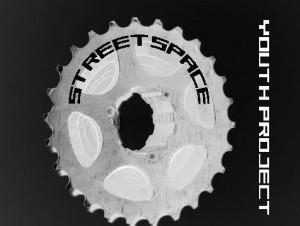In the second episode of Freddie Flintoff’s Field of Dreams The Ultimate Test, down in Newton Heath, Manchester, there’s a key moment. The rebuilding of the clubhouse has slowed; they had lost the lease document and Freddie talks about how nothing had changed since the last visit. Despite this they still get a bunch of young people to show up and start playing. (I’m yet to see if the slow clubhouse progress impacts the wider project). On the Bottle estate, the young people a to move quickly, They want to play proper games with the hard ball, not just knockabouts. They crave the test, the experience of doing the real thing.
It’s a reminder that change often hangs on two surprisingly simple tools: visibility and momentum.
John Kotter, one of the most over quoted figures in change theory, makes much of “short term wins”. His point isn’t just about morale boosting milestones; it’s about the need for evidence. Communities, like individuals, need to see difference made real. A patched fence, a working clubhouse, or that first hard?ball match. Sightlines anchor belief. Without them, the best written vision documents drift into abstraction.
Although I’m yet to watch the rest of the series I suspect in Newton Heath, the clubhouse will be more than bricks and mortar it’s will be a symbol. The slow progress at that site will test patience, while the practice showed possibility but how will the quick and slow play out? (UPDATE just watched the next episode and they had to move to a new venue which I guess kind of proves my point)
At the Northern Mission Centre, we found a parallel when we designed our Speed Incubator. We built it on the principle that pressing the accelerator early helps overcome inertia. Speed matters. Think of it like cycling: harder to push off from standstill, easier once you’re rolling.
In community development, momentum is not about racing ahead irresponsibly. It’s about creating experiences of movement, moments where participants feel the breeze of progress. People learn with their bodies as well as their minds. That first product launched, that story told at a community meal, that visible experiment tried in public, these generate a sense of speed you can feel.
Visible + Experiential = Trust. Bring visibility and speed together, and you start to rebuild trust in the possibility of change. That’s what Freddie Flintoff stumbled into on the Bottle estate. The young people didn’t simply hear him talk about cricket or watch a clubhouse crawl towards completion. They stepped into a match where the sound and sting of the hard ball told them: this is real.
Likewise, our Speed Incubator showed that the feel of “something happening” matters as much as strategy. Prototypes and pilots, no matter how rough, are worth more than perfect plans delayed. The eye sees, the body feels, and the imagination follows.
Lessons for Local Change
For those working in churches, charities and neighbourhood initiatives, the lessons are clear:
• Create visible wins that people can point to. Paint it, patch it, play it, even if it’s not perfect.
• Design for speed experiences that shift momentum. Small risks, real experiments, fast follow?through.
• Remember that change is not only told in documents or meetings, it is embodied in what people see and feel together.
That’s where belief grows. Change is contagious when it shows itself in sights and in motion.


